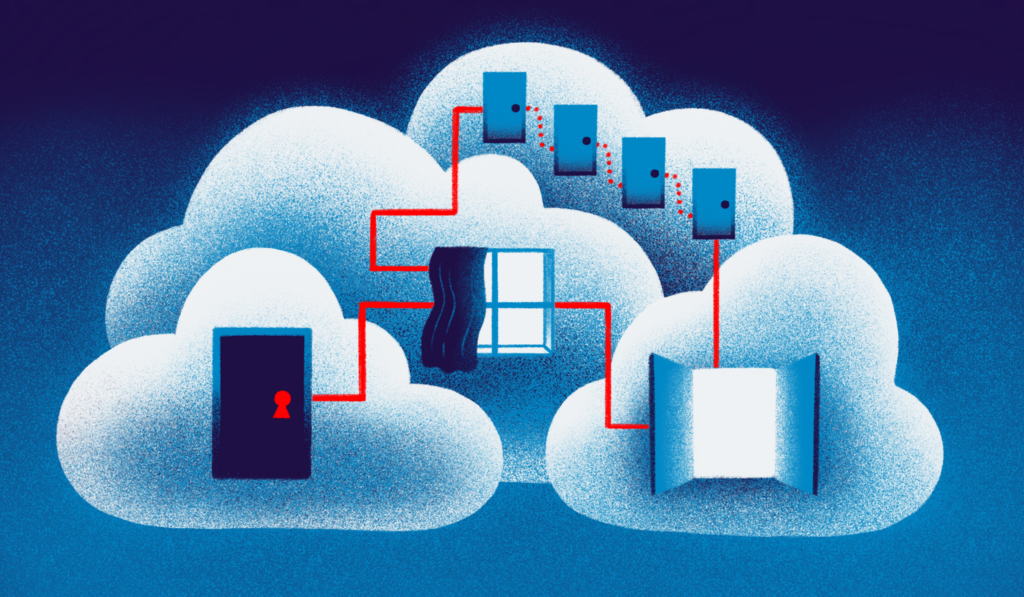Transform Your IT Framework With Universal Cloud Solutions
In today's rapidly evolving electronic landscape, the change towards universal cloud solutions has actually ended up being a tactical necessary for companies looking to boost their IT facilities. By checking out the nuanced ways in which global cloud solutions can be personalized and incorporated, organizations can truly open their full potential in attaining digital makeover and competitive benefit in the market.
Benefits of Universal Cloud Services
Accepting universal cloud services supplies organizations a myriad of advantages that simplify procedures and enhance scalability in today's vibrant digital landscape. One vital benefit is cost-efficiency, as cloud solutions get rid of the demand for in advance financial investments in hardware and framework. This pay-as-you-go model enables businesses to range sources up or down based on their demands, optimizing costs and reducing general IT costs. Furthermore, cloud solutions offer adaptability and availability, enabling workers to access information and applications from anywhere with a web connection. This not only boosts collaboration and efficiency yet also sustains remote job arrangements, which have actually become increasingly widespread in the modern-day service globe.
In addition, universal cloud services provide enhanced safety actions, with information security, routine back-ups, and integrated catastrophe healing systems. This makes sure that business-critical info is shielded from possible dangers and violations. Moreover, cloud services allow automated updates and maintenance, decreasing the burden on internal IT groups and making certain that systems are constantly updated and running smoothly. linkdaddy universal cloud storage press release. Generally, accepting global cloud solutions can cause enhanced efficiency, dexterity, and competitiveness for businesses in today's electronic age.
Movement to Cloud Facilities
Businesses significantly recognize the critical imperative of transitioning their IT infrastructure to cloud-based options. Migrating to cloud framework offers many benefits, including scalability, cost-efficiency, and raised agility. One of the key reasons business go with cloud migration is the capability to range resources up or down based on rising and fall demands, making sure optimal efficiency without overprovisioning. Cloud solutions remove the demand for significant in advance financial investments in physical equipment, reducing funding expenses and enabling companies to pay just for the sources they make use of.
One more advantage of migrating to cloud infrastructure is the improved agility it provides. Cloud platforms use fast implementation of applications and solutions, making it possible for businesses to adapt quickly to market adjustments and remain in advance of rivals. Furthermore, the cloud helps with remote access to data and applications, cultivating partnership among geographically dispersed teams.
Enhancing Information Security Measures

One crucial facet of enhancing information safety is implementing multi-factor verification (MFA) to add an added layer of security past passwords. MFA needs users to supply two or more verification aspects, such as a password and a distinct code sent out to their mobile phone, prior to accessing sensitive information. This considerably lowers the danger of unapproved gain access to, also if passwords are compromised.
Moreover, organizations must frequently perform safety and security audits and susceptability assessments to determine and resolve potential weak points in their information security facilities - linkdaddy universal cloud storage press release. By staying proactive and constantly boosting data safety and security procedures, companies can effectively mitigate risks and secure their valuable information properties in a significantly digital world
Applying Cloud-Based Applications
In adapting to modern technical advancements, organizations are progressively leveraging cloud-based applications to maximize their procedures and boost efficiency. Cloud-based applications provide a variety of advantages, consisting of scalability, cost-effectiveness, and adaptability. By implementing cloud-based applications, companies can improve processes, improve partnership among teams, and enhance overall productivity.

In addition, executing cloud-based applications can lead to far better data management and protection. These applications normally have built-in protection functions and offer information encryption to shield sensitive information.
Making Best Use Of Cost-Efficiency
To accomplish optimal cost-efficiency in leveraging special info cloud-based applications, organizations have to tactically evaluate their source allotment and application. One essential strategy for optimizing cost-efficiency is to adopt a pay-as-you-go design, where organizations only spend for the services and resources they make use of. This flexibility enables price savings by removing the need to invest in pricey infrastructure that might not be totally utilized.

Normal monitoring and optimization of cloud resources are crucial for identifying areas where cost-savings can be attained. By assessing usage patterns and performance metrics, organizations can make educated choices about resource allotment and additional simplify their procedures to take full advantage of cost-efficiency in the cloud.
Verdict
In conclusion, global cloud solutions provide various benefits such as cost-efficiency, flexibility, improved safety and security steps, and automated updates. Migrating to cloud infrastructure allows organizations to leverage cost-efficiency, scalability, and dexterity to remain affordable.
In addition, cloud services give versatility and accessibility, allowing employees to gain access to information and applications from anywhere with a web link.In addition, universal cloud solutions offer better security procedures, with information file encryption, normal backups, and built-in calamity recovery systems. Cloud systems offer fast release of services and applications, allowing organizations to adapt swiftly to market adjustments and stay ahead of competitors. In this contact form addition, the cloud facilitates remote access to data and applications, cultivating collaboration among geographically distributed groups.
In verdict, universal cloud services provide many advantages such as cost-efficiency, adaptability, boosted security steps, and automated updates.